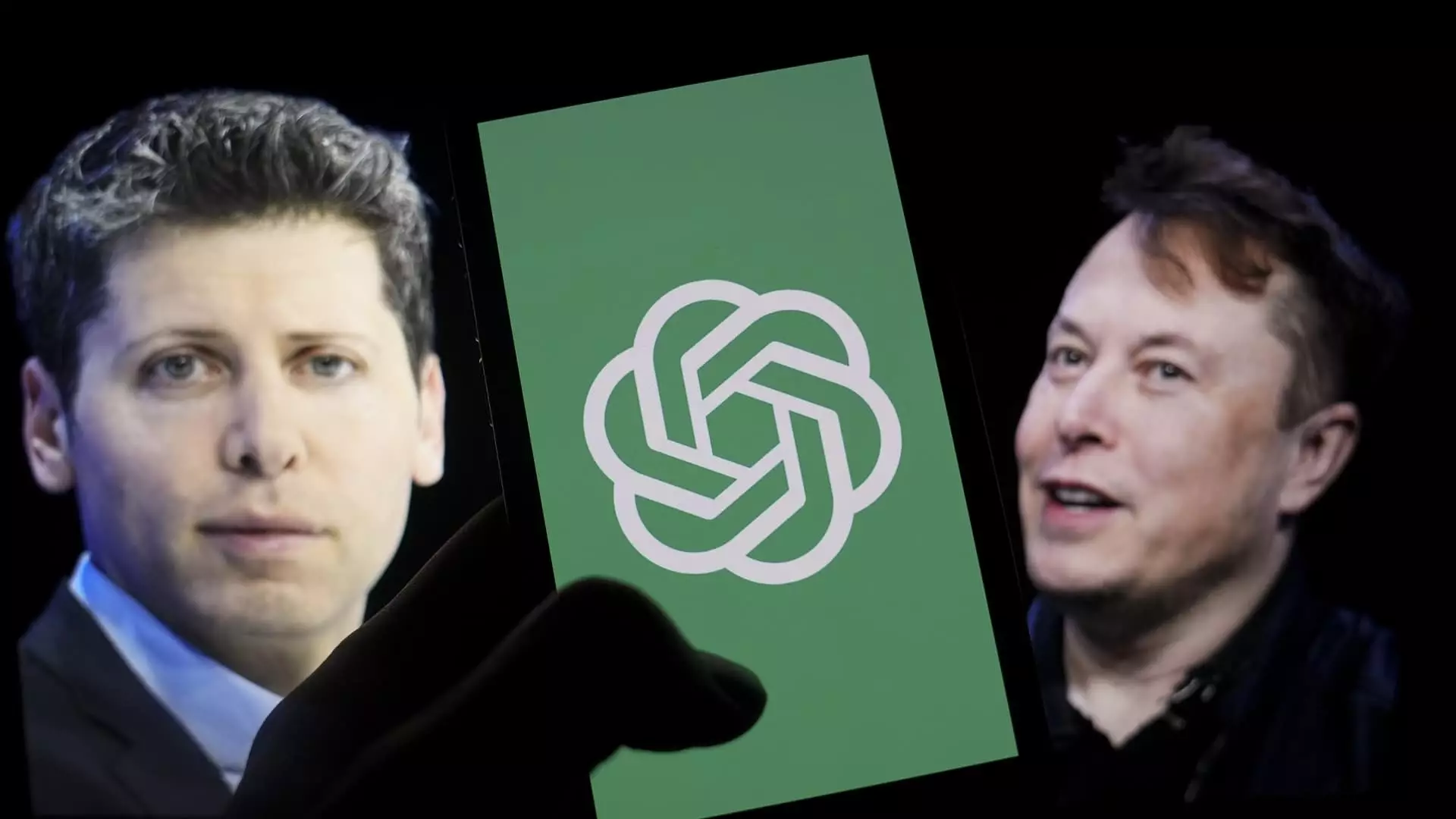The intersection of technology and the law is often fraught with conflicts as innovation outpaces legislation. A compelling instance of this is the recent legal dispute instigated by Elon Musk against OpenAI, an organization he co-founded but later distanced himself from. Musk’s legal maneuverings aim to halt OpenAI’s potential transition to a fully for-profit corporation. This conflict embodies a broader commentary on ethical practices within the competitive AI landscape, heightened by commitments and obligations that stakeholders assume in this rapidly evolving field.
The Context of the Dispute
In the summer of 2023, Musk’s AI startup, xAI, made headlines as it launched its debut product, the Grok chatbot, while ambitiously pursuing funding to enhance its technological infrastructure. The stakes rose considerably when Musk filed a preliminary injunction against OpenAI in federal court, claiming that its actions were tantamount to anti-competitive behavior. This lawsuit broadens the scope of a feud that has seen Musk make several attempts to challenge OpenAI’s business practices, alleging a coordinated effort between OpenAI and its heavyweight investor, Microsoft.
Though the details of Musk’s complaint range from alleged breaches of federal racketeering law to assertions of anti-competitive conduct, at the heart of this dispute appears to be a concern over monopolistic practices that stifle competition within the generative AI sector. The assertion is that OpenAI is not merely a neutral player in the AI ecosystem but is instead wielding its influence to limit investment opportunities for rivals like xAI.
Central to Musk’s lawsuit is the claim that OpenAI allegedly pressured its investors into refraining from providing funding to rival corporations. By attempting to enforce a “group boycott,” Musk argues that OpenAI is attempting to diminish competition and consolidate its own advantageous market position while also benefiting from privileged insider information. This perceived orchestration amounts to creating an unfair marketplace where only certain companies can thrive, predominantly Microsoft and OpenAI themselves.
OpenAI has emerged as a potent entity since its inception in 2015, thriving off significant investments—including around $14 billion from Microsoft, who has positioned itself as a frontrunner in the AI arena. The assertion that OpenAI is controlling investor relations raises essential questions regarding ethical obligations and transparency within this booming industry, particularly as the generative AI market is projected to approach a staggering $1 trillion in revenue within the next decade.
Musk’s legal team posits a narrative that challenges the structure of corporate engagements in AI. They suggest a dichotomy where OpenAI, initially promoted as a non-profit focusing on socially beneficial AI, is morphing into a profit-oriented entity favoring vested corporate interests. Should OpenAI be allowed to continue its trajectory towards complete profit maximization, Musk warns that the foundational ideals of OpenAI—those of ethical AI developments aimed at benefiting humanity—could be compromised.
The rhetorical stance Musk adopts positions him as a defender of equitable opportunities in technology, framing larger firms as monopolies capable of overshadowing emerging players. By claiming that OpenAI’s practices not only harm his own interests but also stifle innovation at large, Musk’s argument operates within an ethical discourse that promotes healthy competition as essential for progress in the AI domain.
The implications of this legal showdown extend beyond Musk and OpenAI, reflecting broader industry trends and concerns. The Federal Trade Commission (FTC) has been monitoring the activities and alliances within the industry, suggesting that increasing consolidation and interlocking directorates may lead to antitrust violations. Musk’s allegations raise critical awareness around these issues, prompting scrutiny of how partnerships between influential firms influence the market.
As OpenAI seeks to transform into a full-profit model, the repercussions could be significant—not just for its own stakeholders, but also for the wider AI ecosystem, including competing firms and emerging technologies. The potential restructuring could legitimize barriers to entry for other startups seeking to navigate this complex marketplace.
As the legal confrontation between Musk and OpenAI unfolds, it highlights essential questions about corporate ethics, responsibilities, and the dynamics of competition in the AI sector. Many are watching to see how judicial interpretations of these corporate interactions will shape future policies and practices in this burgeoning field. The outcome may well dictate not only Musk’s aspirations but also the foundational dynamics of an industry poised to redefine global technology landscapes.

Leave a Reply